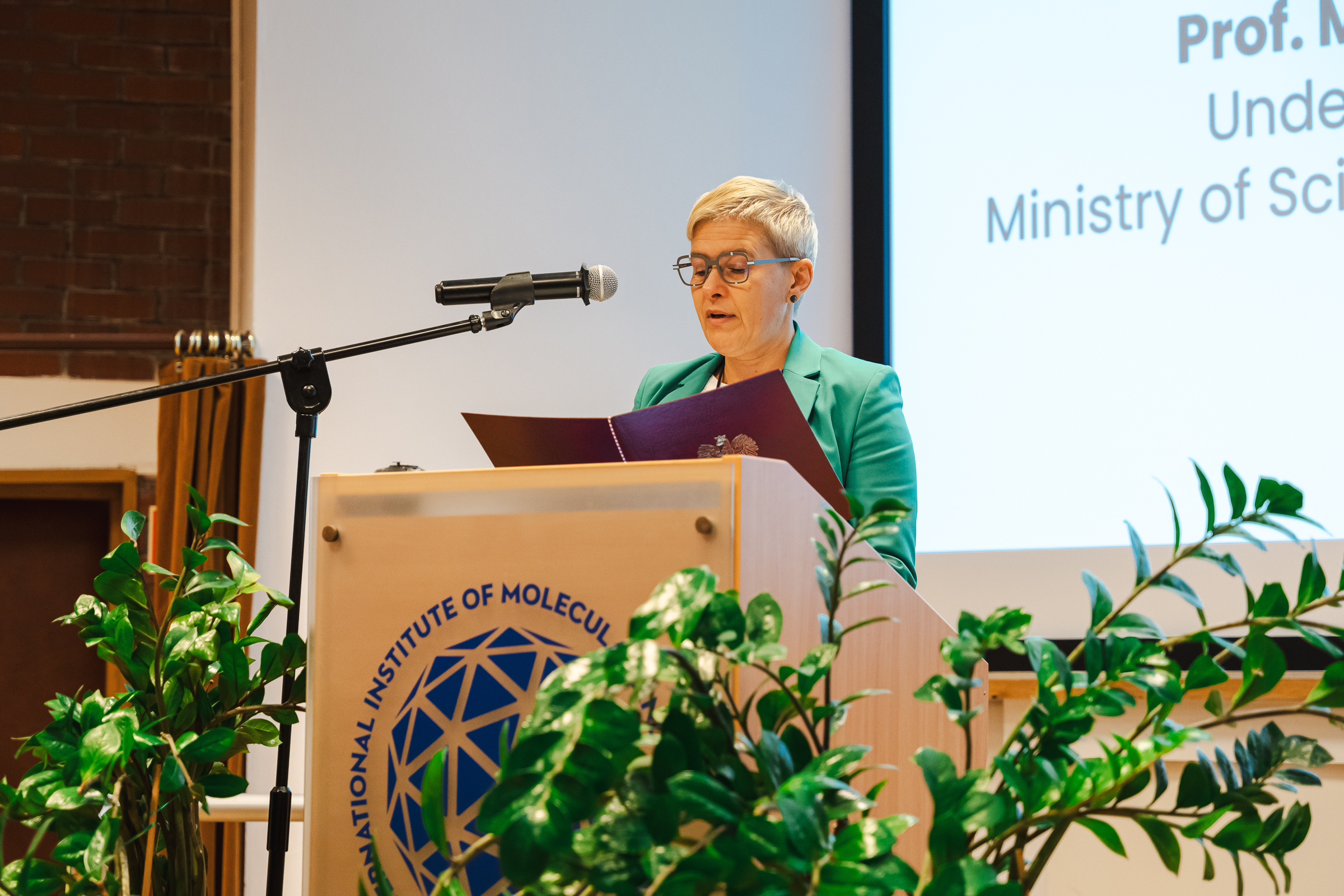Professor Aaron Ciechanover as the Special Guest at the Inauguration of the Academic Year at the Warsaw PhD School in Natural and BioMedical Sciences (Warsaw-4-PhD)
"Work should be a hobby – that gives you strength for decades. Don't be afraid of your intuition, listen to it," said Professor Aaron Ciechanover, a world-renowned biochemist and Nobel Prize laureate, during his visit to Warsaw.
 Prof. Aaron Ciechanover and PhD students
Prof. Aaron Ciechanover and PhD students
The distinguished Israeli scientist spoke at the ceremony, which brought together doctoral candidates, PhDs and academic staff from the institutions that make up the Warsaw-4-PhD School. The researcher, who works at the Technion – Israel Institute of Technology in Haifa, recalled that it was nearly 20 years ago when he received the Nobel Prize in Chemistry for his discovery of ubiquitin-mediated protein degradation in cells. In his speech, he discussed milestones in biomedical sciences: the discovery of penicillin, the tremendous advances in imaging techniques, and, finally, the discovery of the double helix structure of DNA, which he considers the greatest discovery to date. "We are now experiencing another revolution in medicine," argued the Nobel laureate. "Medicine in the 21st century will be characterized by the '4 Ps' – personalization, prediction, prevention, and participation. This means redefining the concepts of disease, treatment, and even the patient." "The medicine of the future is 'tailor-made,' as opposed to the current approach of 'one size fits all,'" Professor Ciechanover said.
 Maria Mrówczyńska, Undersecretary of State at the Ministry of Science and Higher Education of Poland
Maria Mrówczyńska, Undersecretary of State at the Ministry of Science and Higher Education of Poland
The event was graced by the presence of Maria Mrówczyńska, Undersecretary of State at the Ministry of Science and Higher Education of Poland. She read a letter from the Minister of Science, Dariusz Wieczorek, addressed to the Warsaw-4-PhD community: "The day marking the start of the new academic year at a university is a kind of holiday for the entire academic community. I am confident that the coming months will be a time for all of you to deepen your knowledge and skills, pursue scientific passions, and participate in ambitious research projects," the Minister of Science conveyed to the attendees. He also referred to the recent floods in southern Poland, expressing gratitude for the academic community's support for schools affected by the disaster.
The meeting was attended by the directors of the institutes that form Warsaw-4-PhD, members of the School’s Program Board, and representatives of the PhD student council. Additionally, there were presentations by scientists who shared their experiences: Wiktoria Podolecka from the Nencki Institute of Experimental Biology PAS, and Natalia Szulc and Dr. Aleksandra Kołodziejczyk from the International Institute of Molecular and Cell Biology in Warsaw.
After the ceremony, Professor Ciechanover met directly with PhD students from the Warsaw PhD School in Natural and BioMedical Sciences. During the lively conversation, personal topics were also discussed: the professor’s grandparents lived in Ciechanów, which is the source of his strong ties to this town.
 From left: Prof. Agnieszka Dobrzyń, Chair of the Board of Directors of the Warsaw-4-PhD School, Maria Mrówczyńska, Prof. Aaron Ciechanover, and Prof. Marta Miączyńska, Director of the IIMCB
From left: Prof. Agnieszka Dobrzyń, Chair of the Board of Directors of the Warsaw-4-PhD School, Maria Mrówczyńska, Prof. Aaron Ciechanover, and Prof. Marta Miączyńska, Director of the IIMCB
The formal inauguration of the academic year at the Warsaw-4-PhD School took place on October 7, 2024, and was organized by the International Institute of Molecular and Cell Biology in Warsaw (IIMCB). The Warsaw-4-PhD School offers education in four scientific disciplines: biology, chemistry, physics, and medicine. More information about the School and its founding institutes can be found at: https://warsaw4phd.eu/#institute.
Professor Aaron Ciechanover is a member of the International Advisory Committee of the International Institute of Molecular and Cell Biology in Warsaw.


